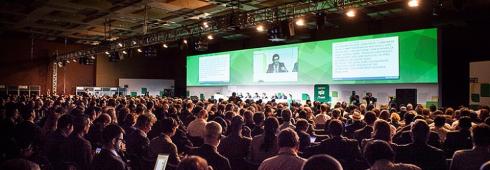ICTs and Human Rights January 2013,National Human Rights Commission of Korea
* 원문 : http://bestbits.net/itu-plenipot-notes/ Executive Summary
Considering that the purpose of the constitution and international human rights law is to protect private life, personal information, and the privacy and freedom of communication from any governmental surveillance, the present legal system in South Korea, such as PCSA and the Data Protection Act, means that the government is infringing on these human rights.
It is the government’s duty to protect its citizens; therefore, there is little justification for the government to prioritise administrative efficiency over the rights of the socially disadvantaged. As a short-term goal, relevant laws must be amended so that female victims of violence can minimise exposure of their personal information. Of course, in the long term, legislators should consider gender-specific needs prior to making all policies in order to prevent such trial and error.
We are concerned that, in the socio-political context, there is a high possibility for IT to be misused to carry out state surveillance and commit violations of the right to privacy. We welcome the UN General Assembly resolution and the report of the Office of the High Commissioner for Human Rights on the right to privacy in the digital age, and we emphasize the urgent need for these recommendations to be implemented by the RoK.
– On 23rd of July, six Korean human rights activists file a lawsuit against Google Inc. and Google Korea requesting the disclosure of personal information provision records to Seoul Central District Court
Seven internet service and communications providers from around the world filed a legal complaint today, calling for an end to GCHQ’s attacking and exploitation of network infrastructure in order to unlawfully gain access to potentially millions of people’s private communications.

On 23-24, April, a global multistakeholder meeting on Internet governance , “NETmundial,” was held to discuss the Internet Governance Principles and future approaches in Sao Paulo, Brazil. This meeting was considered historic in that it enabled multistakeholder participation during the process, enabling governments, civil societies, private sectors, technical communities, and academia, etc., to participate in the process of determining the final resulting content of meeting.
베스트 비트(Best Bits)는 인터넷 관련 국제 시민사회 네트워크입니다. 베스트 비트 역시 ‘인터넷 거버넌스의 미래에 관한 세계 멀티스테이크홀더 회의’에 의견을 제출하였으며, 진보넷도 이에 연명하였습니다.
베스트 비트(Best Bits)는 인터넷 관련 국제 시민사회 네트워크입니다. 베스트 비트 역시 ‘인터넷 거버넌스의 미래에 관한 세계 멀티스테이크홀더 회의’에 의견을 제출하였으며, 진보넷도 이에 연명하였습니다. 원문 : http://bestbits.net/netmundial-principles/
